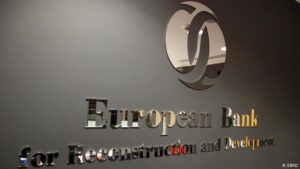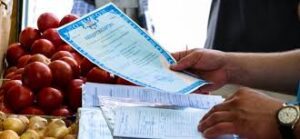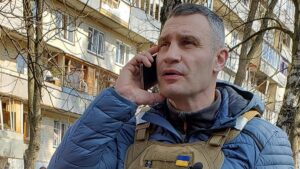
The European Bank for Reconstruction and Development (EBRD) intends to invest $1 billion in 2022 and is ready to finance NJSC Naftogaz Ukrainy, said Bank President Odile Renault-Basso.
“We intend to continue investing $1 billion this year and we are focused on supporting key infrastructure such as the power grid (Ukrenergo), we are reserving a Naftogaz credit line to support their working capital and liquidity,” she said during the discussions at the Ukrainian House in Davos as part of the World Economic Forum on Wednesday.
The EBRD intends to offer an investment plan to support these companies and the private sector in general, provide credit lines for agribusiness and pharmaceuticals and not only, she added.
“We also plan to work with municipalities to help internally displaced people,” said Renaud-Basso.

President of Ukraine Volodymyr Zelensky signed law No. 2246-IX (previously bill No. 7264 on uninterrupted production and supply of agricultural products during martial law), adopted by the Verkhovna Rada as a whole on May 12.
The relevant information was published on the parliamentary website on Wednesday.
As reported, the Verkhovna Rada simplified the export, import and transit of agricultural products to Ukraine during martial law, which will expand farmers’ access to fertilizers and genetic material of farm animals, as well as support the Ukrainian organic industry.
“The task of the state is to simplify farming under martial law as much as possible and reduce the bureaucratic burden on business and government bodies. This applies, in particular, to the state registration of pesticides and agrochemicals, which is extremely important during the spring sowing campaign in 2022. Also it is important to support niche sectors of agriculture and organic production,” the explanatory note to the document states.
Law No. 2246-IX abolishes until the end of martial law and for 90 days after its cancellation the state registration of agrochemicals imported into Ukraine, including some types of nitrogen fertilizers, ammonium nitrates, ammonia in aqueous solution, thiosulfates, potassium, calcium and aluminum phosphates, borates, chelate zinc and a number of other mineral fertilizers.
In addition to the simplified import of such types of fertilizers, the bill cancels the state registration procedure for their production, sale, use and advertising.
The law also allows producers of organic products to use the label “organic”, “biodynamic”, “biological”, “ecological”, “organic” until July 1, 2024, even if they are not operators of organic products in accordance with law 2496-VIII on turnover organic products.
This initiative allows Ukrainian producers of organic products that were producing according to EU standards, but did not meet the status of an operator of organic products according to Ukrainian standards, to switch to Ukrainian production standards without an additional transition period. It also allows them to qualify for government support.
The document expands the list of entities that can take samples and conduct phytosanitary examination, in particular, introduces until the end of martial law and by 90 after its cancellation a simplified procedure for involving employees of private laboratories in the examination, and also authorizes agronomists-inspectors to conduct such inspections to conduct an audit on certification.
In addition, Law No. 2246-IX allows the import to Ukraine of cargoes with live animals in transit through countries where there are cases of disease from the list of the International Epizootic Bureau (OIE). This will allow the Ukrainian livestock industry to access modern breeding genetic material from the EU countries and expand the diversity of breeding material of agricultural animals in Ukraine.
ANIMALS, FERTILIZERS, IMPORT, LAW, PHYTOSANITARY CERTIFICATES

The Ministry of Agrarian Policy and Food of Ukraine initiated the allocation of UAH 3.39 billion of portfolio guarantees to four state-owned banks for lending to the processing industry of the Ukrainian agro-industrial complex.
As reported on the website of the agency on Wednesday, this measure will stimulate the processing of agricultural raw materials within the country, large reserves of which are difficult to export in the context of a halt in Ukrainian agricultural exports due to the blockade of its key seaports by Russian warships.
“Given that our seaports are blocked and we cannot export our grain in the required quantity, we will focus on the processing industry. As a result, enterprises operating in this area, thanks to portfolio guarantees, will be able to buy a certain stock of their products from agricultural producers , and the latter, in turn, will be able to repay part of the body of the loan,” Bagrat Akhidzhanov, director of the financial and economic department, quotes the Ministry of Agrarian Policy.
According to him, lending to agricultural processing will provide the maximum possible financial resource to the entire sphere of the Ukrainian agro-industrial complex.
In addition, it is specified that the ministry has already developed a plan for further financing of farmers in June-August.
“The Ministry of Agrarian Policy has a number of developments in lending to the agricultural products processing industry. Yes, we have already initiated changes to Decree No. 723 to expand the list of those who can receive loans under state guarantees by including processing enterprises in this list,” the statement reads. message of the words of First Deputy Minister Taras Vysotsky.
As reported with reference to the Minister of Agrarian Policy Mykola Solsky, the main factors for the development of agricultural processing in Ukraine are the opening of European and world markets on an ongoing basis, as well as affordable financing for farmers.
AGRO-INDUSTRIAL COMPLEX, MINISTRY OF AGRARIAN POLICY, PROCESSING INDUSTRY

Austria will accept up to 100 seriously wounded women and children from Ukraine for treatment and rehabilitation, Austrian Chancellor Karl Nehammer said.
“Yesterday I spoke with Ukrainian President Volodymyr Zelensky and Prime Minister Denys Shmygal. I offered to accept, treat and provide rehabilitation for up to 100 seriously wounded women and children. We will continue to help as much as we can!” Nehammer wrote on Twitter on Wednesday.

Kyiv will have a restoration plan “one day after the war,” Mayor Vitali Klitschko told Interfax-Ukraine following talks at the World Economic Forum (WEF).
“Everyone is stressing that we should prepare a plan for the day after the war: where and what we plan to do,” he told Interfax-Ukraine on Wednesday on the sidelines of the Ukrainian Breakfast hosted by the Pinchuk Foundation in Davos, host of the WEF.
According to Klitschko, separate projects for the renewal of infrastructure, logistics and the construction of a number of facilities are planned even for wartime.
At the same time, the mayor said that due to problems with the execution of the national budget, the capital is experiencing difficulties in accessing its own funds in the State Treasury.
“We have the city’s money in the Treasury, but there is no money in the Treasury. That is, we have money virtually, but not really,” he said.
Answering the question whether it is possible in such circumstances, Kyiv, following the example of the government, will also turn to the issuance of war bonds, Klitschko said: “Maybe.”
In the middle of May, the mayor estimated the cost of restoring all damaged buildings in the city at more than EUR 70 million.